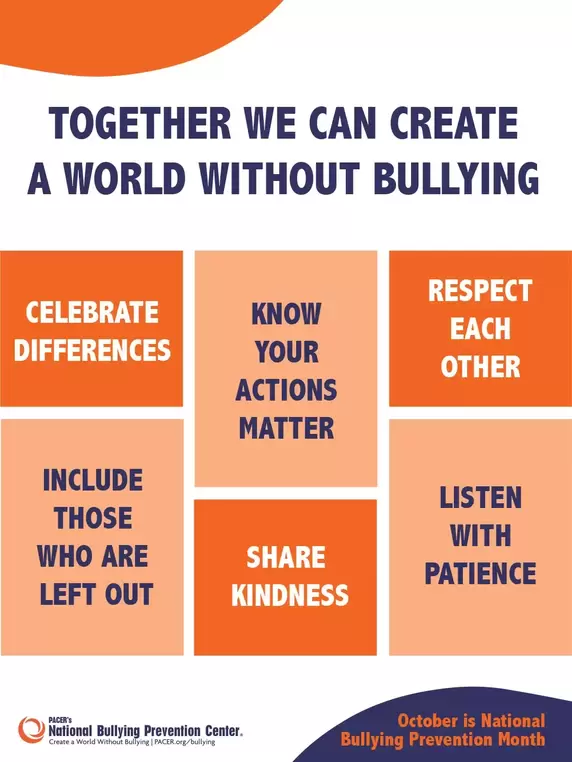|
)The goal of National Bullying Prevention Month is to encourage schools, communities, and organizations to work together to stop bullying and cyberbullying and put an end to hatred and racism by increasing awareness of the prevalence and stop impact of all forms of bullying on all children of all ages. It was created in October 2006 by organizations such as PACER's National Bullying Prevention Center, National Education Association, National PTA, American Federation for Teachers, and the National Coalition for Parent Involvement in Education, to raise awareness of the issue of bullying.
Firstly, let's define bullying. Bullying is unwanted, aggressive behavior among school-aged children that involves a real or perceived power imbalance. The behavior is repeated, or has the potential to be repeated, over time. Bullying includes actions such as making threats, spreading rumors, attacking someone physically or verbally, and excluding someone from a group on purpose. Bullying can also take place through technology, known as cyberbullying. Examples of cyberbullying include mean text messages or emails, rumors sent by email or posted on social networking sites, and embarrassing pictures, videos, websites, or fake profiles. There are many other types of aggressive behavior that may not fit the definition of bullying, but that does not mean that they are any less serious or require less attention than bullying. Rather, those behavior require different prevention and response strategies. (From the Youth.gov definition) Here are some things teachers and school leaders can do to create a safe and supportive environment that helps to prevent bullying:
Avoid these mistakes when supporting students who are bullied:
Here are some ways to address bullying behavior:
0 Comments
Leave a Reply. |
AuthorWrite something about yourself. No need to be fancy, just an overview. Archives
June 2022
Categories |


 RSS Feed
RSS Feed